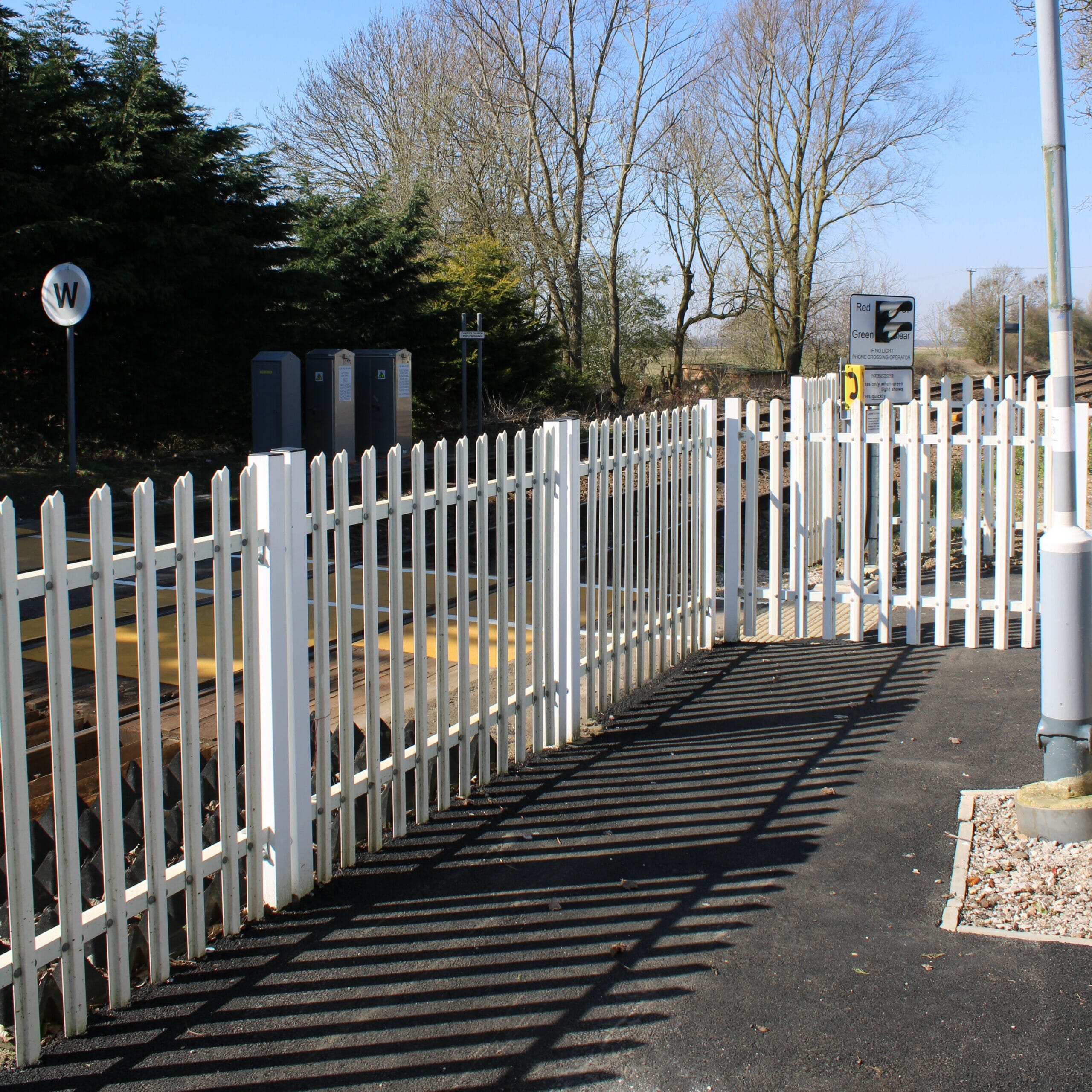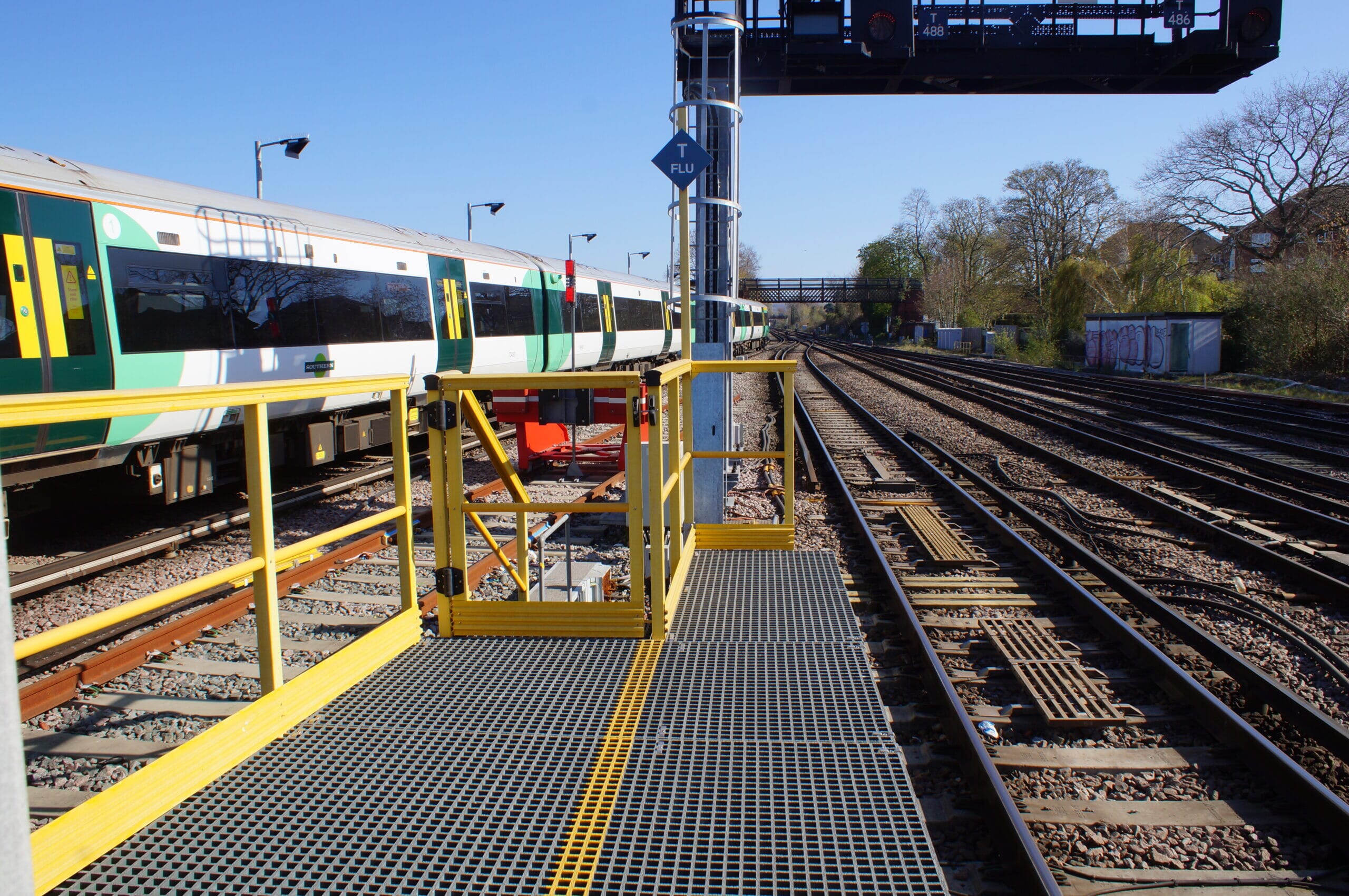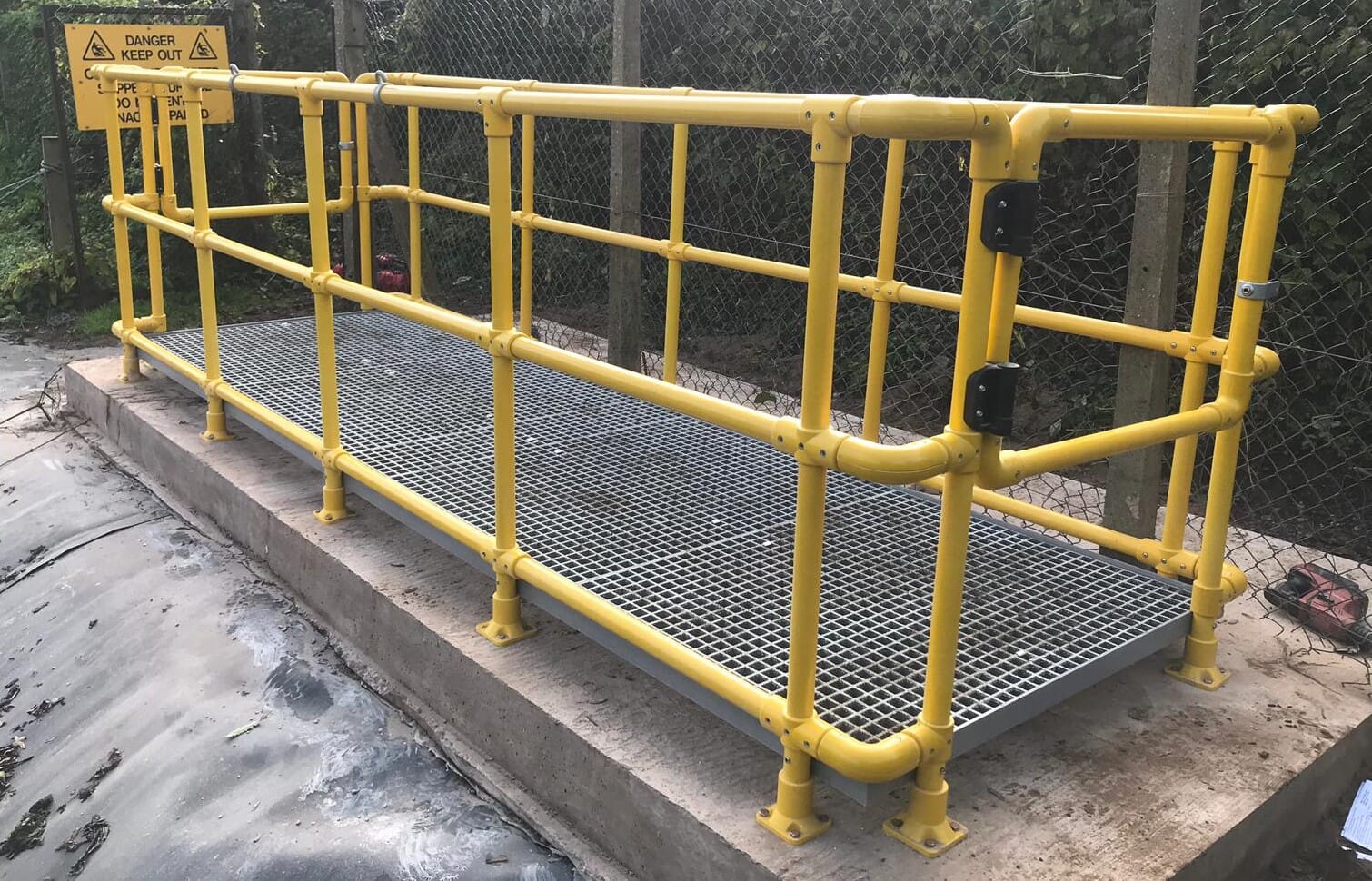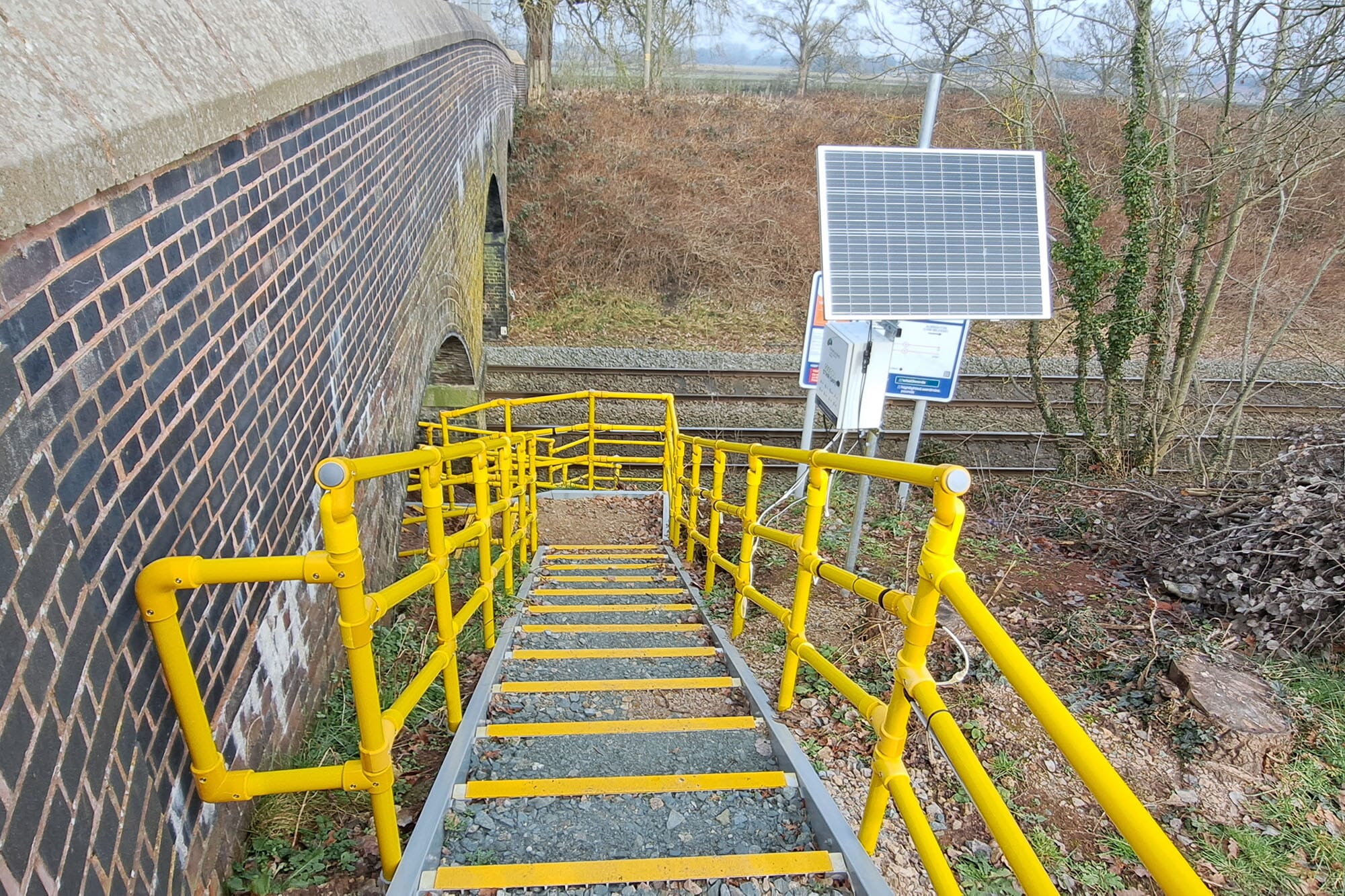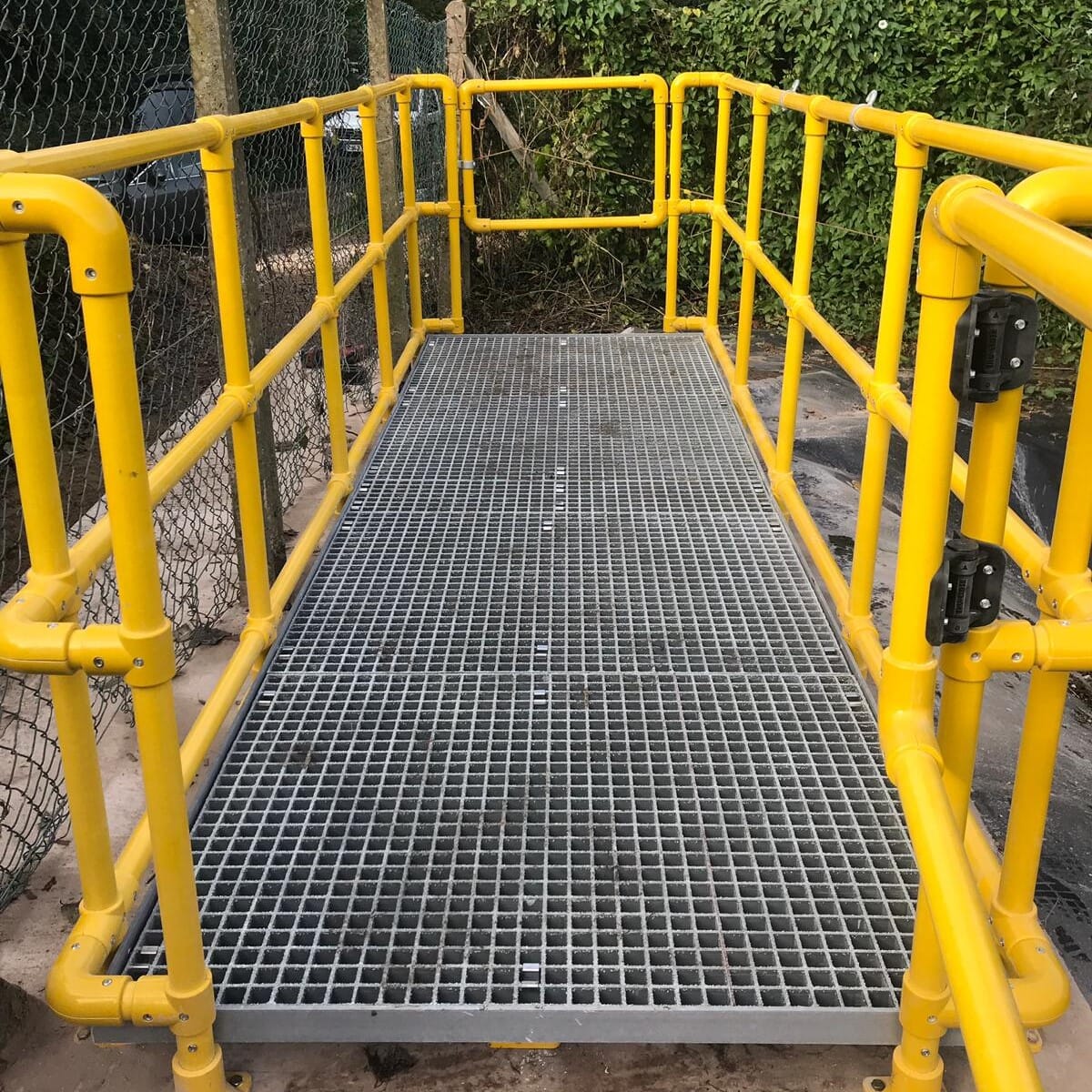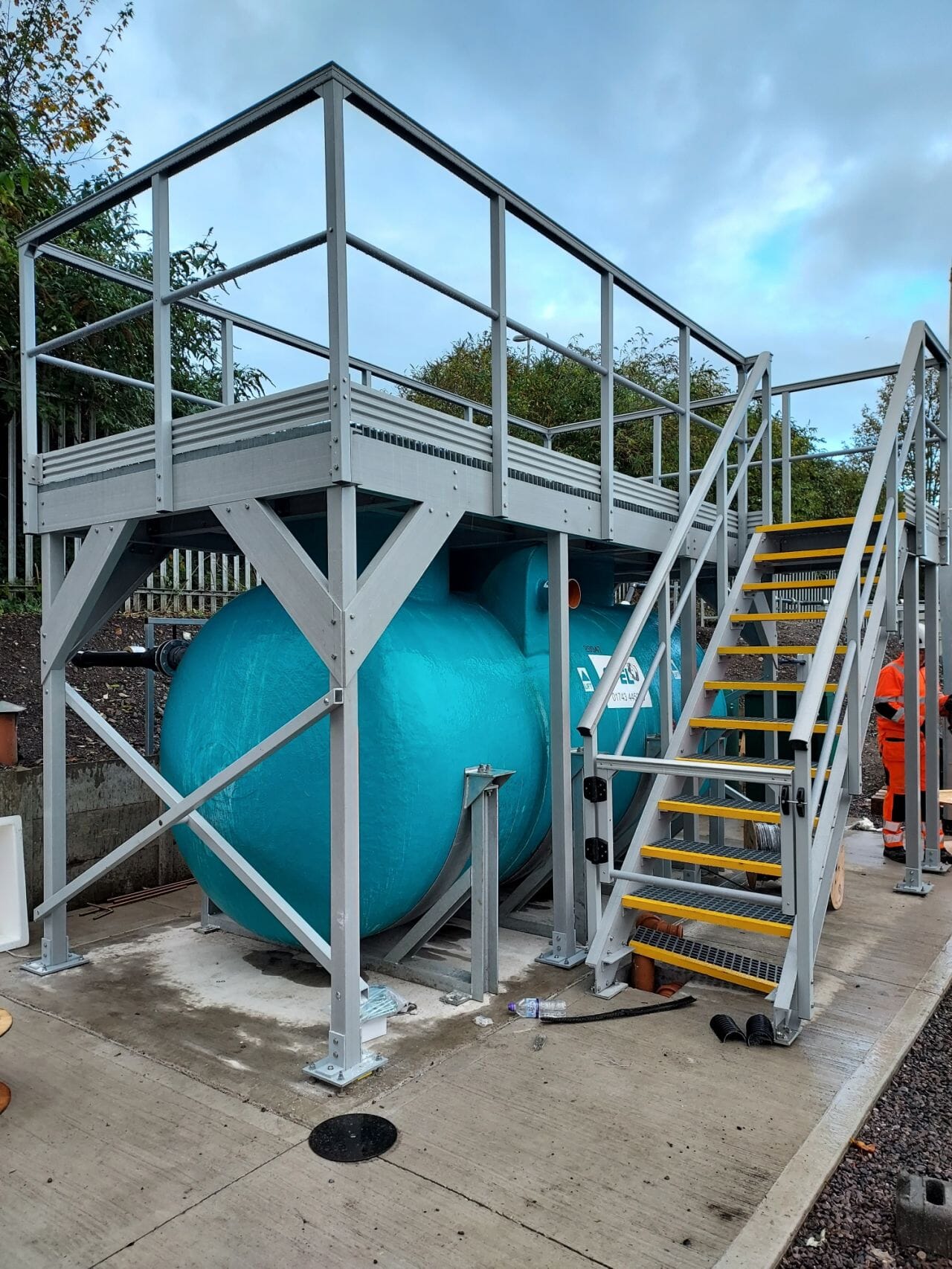Enhancing perimeter protection with GRP palisade fencing
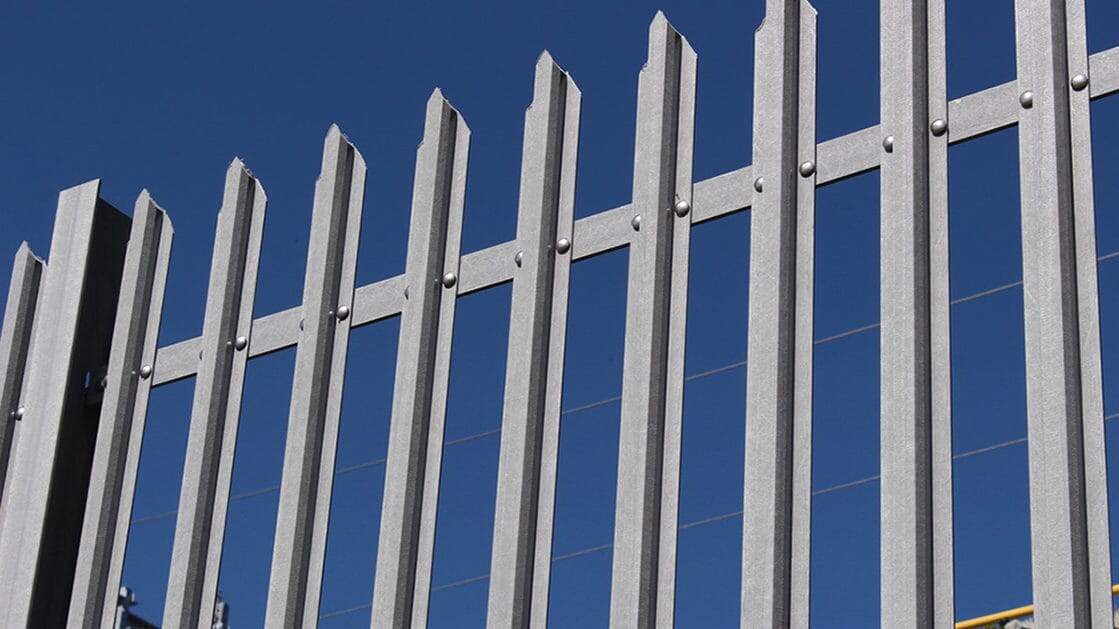
Need to improve your site’s security, but don’t want the hassle of constant upkeep? Enter GRP palisade fencing: a durable and lightweight fencing solution that protects your premises from unauthorised access and environmental damage. Thanks to its long-term reliability and minimal maintenance requirements, GRP fencing is quickly becoming the go-to alternative for all types of commercial and industrial sites.
Here’s why more and more businesses are making the switch to GRP palisade fencing…
What is GRP fencing?
Also known as fibreglass, Glass Reinforced Plastic (GRP) is a composite material made by combining plastic with fine glass fibres. This results in an extremely strong material that’s significantly lighter than steel, yet tough enough for hazardous and high-security applications.
GRP palisade fencing is non-conductive and corrosion-resistant, resulting in no rust and enhanced safety in electrical environments. It’s also self-coloured, meaning there’s no painting or ongoing maintenance required. When you install GRP fencing panels, you’re investing in a reliable fencing solution that’s guaranteed to stand the test of time.
Why choose GRP fencing?
Here’s what makes GRP fencing an ideal choice for your commercial or industrial site:
- Lightweight – Up to four times lighter than steel, which makes transportation and installation much easier
- Strong – GRP has a comparable tensile strength to steel, with excellent impact resistance
- Low maintenance – GRP doesn’t rust or need repainting, making it ideal for long-term use
- Non-conductive – Thanks to its non-conductive and non-sparking nature, GRP is ideal for electrical applications
- Weatherproof – Can withstand harsh conditions such as UV light, extreme moisture, and chemical exposure
- Customisable – Can be easily cut and assembled on-site, making installation quick and fuss-free
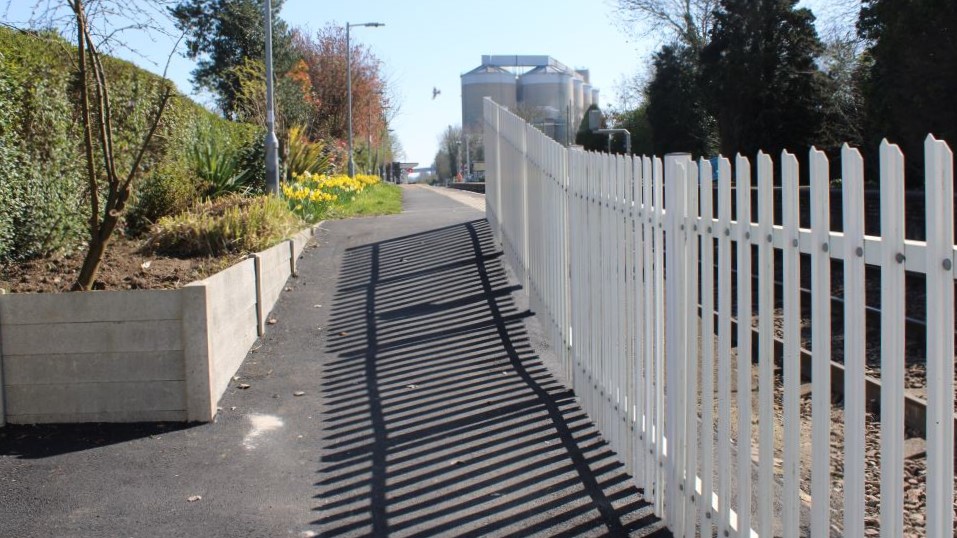
Where does GRP palisade fencing work best?
GRP palisade fences are specifically designed for high-risk environments that demand stringent security measures. Examples of these include:
- Electrical & utility sites – GRP is often used in electrical substations and railways due to its non-conductive nature
- Chemical & water treatment plants – GRP is resistant to chemical corrosion, making it ideal for wet and hazardous environments
- Coastal locations – GRP is UV-resistant and unaffected by salty air, making it the go-to choice for sites in coastal locations
- High-security premises – The spiked finish of GRP palisade fences help to deter intruders by preventing climbing
GRP fencing vs traditional materials
Not sure whether GRP, steel, or timber fencing is right for your site? We’ve created a simple table to highlight the differences:
| Feature | GRP Fencing | Steel Fencing | Timber Fencing |
| Weight | Light | Heavy | Moderate |
| Maintenance | Minimal | Needs painting | Prone to rot or splitting |
| Conductivity | Non-conductive | Conductive | Non-conductive |
| Corrosion resistance | High | Prone to rust | Prone to decay |
| Installation | Quick & easy | Labour-intensive | Time-consuming |
Still need help choosing the ideal fencing material? Contact us for expert advice tailored to your site.
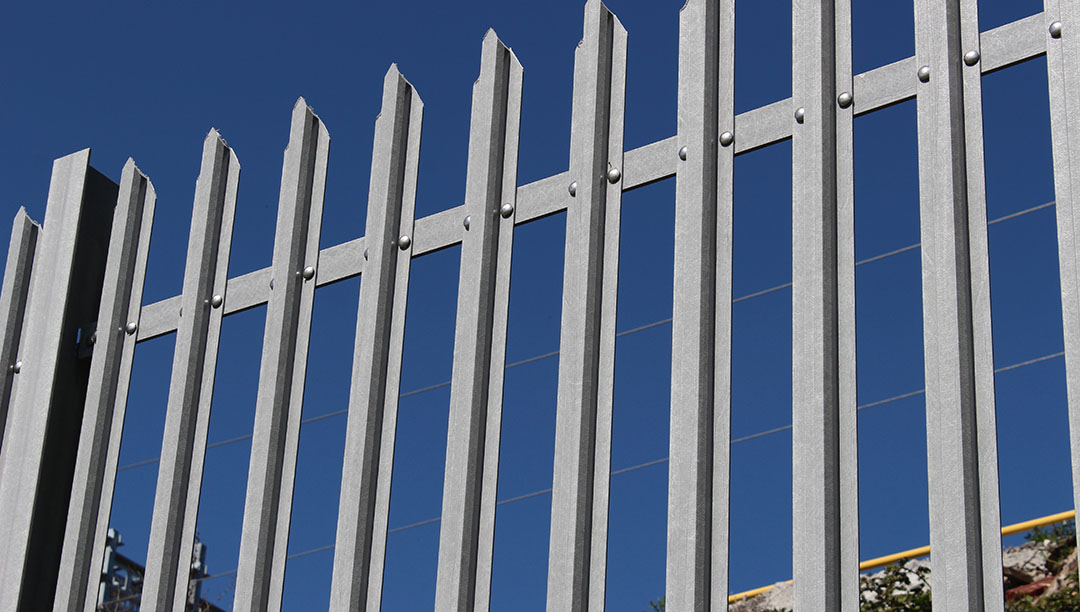
Strengthen your site’s security with Ezi Klamp’s GRP palisade fencing
Do you need to safeguard valuable equipment or secure hazardous areas on site? GRP palisade fencing can help you achieve just that. But it’s not just about materials – it’s about choosing the right partner who can deliver a robust and long-lasting safety solution.
At Ezi Klamp, we have over 25’ years experience in providing innovative GRP fencing systems that are engineered to last, even in the toughest environments. We tailor our solutions to meet the specific needs of your site, and our expert team is always here to offer detailed advice on choosing the right product for your application. If you need a hand installing your GRP palisade fencing, our CSCS-accredited team can help with complex installations.
Get in touch to discover more about our industry-leading GRP palisade fencing solutions.
